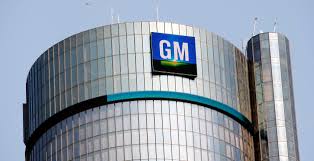General Motors (GM) has announced that it will sell its stake in a nearly completed electric vehicle (EV) battery plant in Lansing, Michigan, to its partner LG Energy Solutions. The move marks a significant shift in their joint venture, Ultium Cells LLC, which was originally formed to develop the facility. Following the deal, LG Energy Solutions will take full ownership of the plant, finalize its construction, and begin producing batteries for EVs. Notably, the factory will not just supply GM but will also sell batteries to other customers, expanding LG’s reach in the EV battery market.
A $1 Billion Return for GM
Under the terms of the deal, GM will receive back the $1 billion it had initially invested in the Lansing facility. While GM is stepping away from direct ownership of this particular plant, the two companies will continue to collaborate closely, as they have at other battery factories in the U.S. GM and LG Energy Solutions currently operate joint ventures at plants in Warren, Ohio, and Spring Hill, Tennessee, which produce batteries for GM’s EV models, including the Cadillac Lyriq and Chevrolet Equinox EV.
After the sale, GM will still retain ownership of three other battery factories in the U.S., including one in New Carlisle, Indiana, a joint venture with Samsung SDI. The company is positioning itself as a leader in EV battery production, with the potential to profit significantly from the growing EV market in the U.S.
Expanding Battery Manufacturing Capacity
GM and LG’s continued partnership will see the companies jointly develop prismatic battery cells, which offer several advantages over traditional cylindrical cells. Prismatic cells are flat and packed into rigid cases, allowing them to hold more energy and potentially reduce manufacturing complexity. These cells are expected to play a key role in GM’s future EVs, improving energy density and efficiency while lowering production costs.
GM’s Chief Financial Officer, Paul Jacobson, emphasized that the company’s strategy for EV production is increasingly capital-efficient. “We believe we have the right cell and manufacturing capabilities in place to grow with the EV market,” Jacobson stated. “When completed, this transaction will also help LG Energy Solution meet demand by leveraging capacity that’s nearly ready to come online and it will make GM even more efficient.” This efficiency will help GM continue to scale its EV business while taking advantage of government incentives tied to domestic battery production.
Challenges on the Horizon
While GM is optimistic about its path to profitability in the EV sector, external factors, such as potential changes in government policy, could pose challenges. Former President Donald Trump has indicated that he plans to cancel EV subsidies if he returns to office, which could disrupt GM’s efforts to make its EV business as profitable as its gas-powered vehicles.
Despite these uncertainties, GM is positioning itself to remain a strong player in the EV market by focusing on domestic battery production and forming strategic partnerships with companies like LG Energy Solutions. With this latest move, GM aims to streamline its operations while continuing to expand its EV production capabilities.

